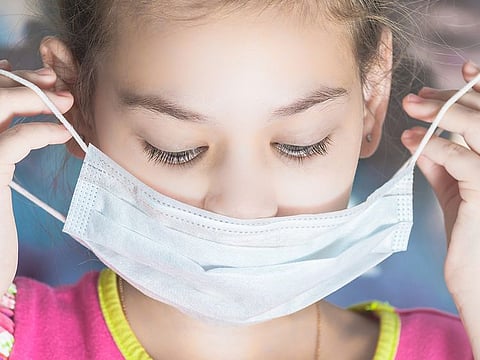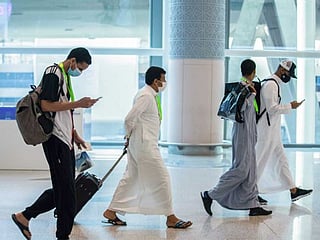COVID-19: Follow these 5 tips during Eid Al Adha 2020, warn UAE authorities
Participants who attend large gatherings and violate rules will also face Dh5,000 fine

Dubai: Ahead of the Eid Al Adha holidays, which will start from July 30 on Arafat Day, UAE authorities have warned residents to follow these five guidelines to prevent the spread of COVID-19.
On Wednesday, Abu Dhabi Police warned that violations related to public and private gatherings, meetings and celebrations will incur a Dh10,000 fine on organisers and a Dh5,000 fine against participants.
The Ministry of Health and Community Protection, in coordination with the UAE government, recommended how Eid should be celebrated this year, which included: performing Eid prayers at home, paying charity organisations to sacrifice animals on your behalf, carrying out social distancing when visiting immediate family members, distributing Eidiyah (money for Eid) electronically, as well as to exercise caution when in contact with elderly people and those with chronic diseases.
The cautionary message was issued to ensure the safety of the public as part of the government’s efforts to contain COVID-19 and to limit its spread among families.
1. Praying at home
Authorities called for residents to perform Eid Al Adha prayers in homes and takbeers broadcast through visual and audio means.
The Arafat Day sermon will be translated into ten languages for broadcast on two platforms, according to the General Affairs of the Grand Mosque and the Prophet’s Mosque in Saudi Arabia. The sermon last year was translated into five languages. However, the sermon for this year will be in English, Malay, Urdu, Persian, French, Mandarin, Turkish, Russian, Hawsawi and Bengali. Arafat Day marks the second day of Haj. The occasion also marks the day when a verse of the Quran revealed that Islam was perfected, and when Allah’s blessings were completed.
2. Sacrifices and donations
The Emirates Council for Sharia Fatwa recommended that donations and sacrifices should be to official charitable causes in the country only.
The UAE has identified three methods for individuals to purchase and distribute Eid sacrifices, which include:
Municipal abattoirs warned against dealing with unlicensed butchers and workers when sacrificing animals, and urged residents not to distribute them to family members and friends in order to prevent the spread of COVID-19.
3. Visits and gatherings
The National Emergency, Crisis and Disasters Management Authority (NCEMA) stressed the need to avoid family visits and gatherings, replacing them with electronic means of communication or phone contact. Visiting pregnant women, children and those with chronic diseases who are most vulnerable to COVID-19, must be avoided.
4. Eid celebrations
Use virtual communication tools to communicate with family members, relatives and friends to exchange Eid greetings. Avoid giving toys or Eidiyah (gift in the form of money to children during Eid) in the conventional form and use electronic means instead, such as through banks or various apps.
5. Commitment to precautionary measures
The official public holidays for Eid Al Adha, corresponding to the year 1441 of the Islamic calendar, are from July 30 to August 2, 2020. Arafat Day will be on July 30 and Eid Al Adha will be celebrated on July 31.
Families are not allowed to hold special celebrations in homes, farms or large gatherings, and meet-ups are restricted to a limited number of immediate and direct family members. To ensure that residents are safe, authorities emphasised the need to maintain a safe distance at all times between each person, provided that it is not less than two meters, and follow disinfection procedures at home. It is also vital to avoid handshakes, in addition to the use of disposable dishes and cutlery.
Health authorities stressed the importance of protecting the elderly and to refrain from visiting them.






